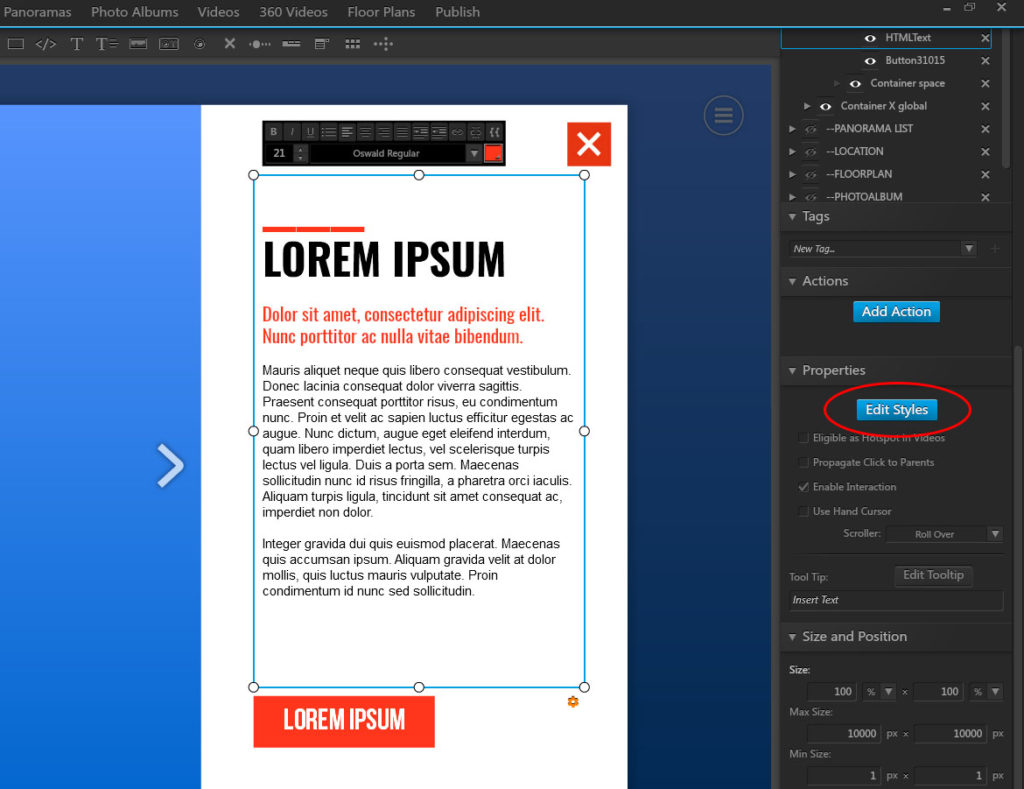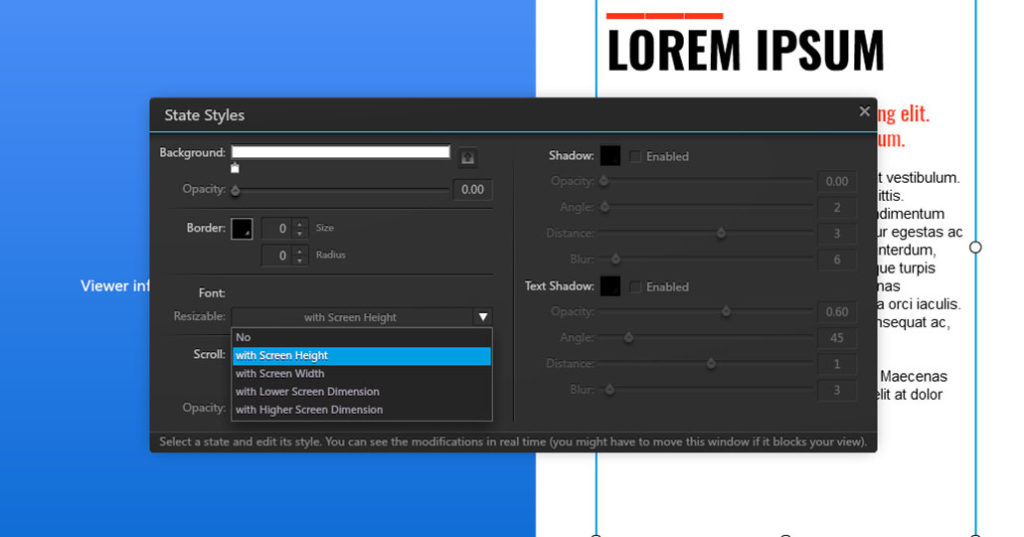¿Cómo podemos ayudar?
¿Se pueden añadir fuentes redimensionables también a Texto Multilínea y con Estilo en el skin?
Ya es redimensionable. En Editar estilos, esta fuente es redimensionable. Se aplica a todo el texto, puede tener diferentes tamaños, pero lo que no puede ser es que una parte del texto sea redimensionable y otra no.

